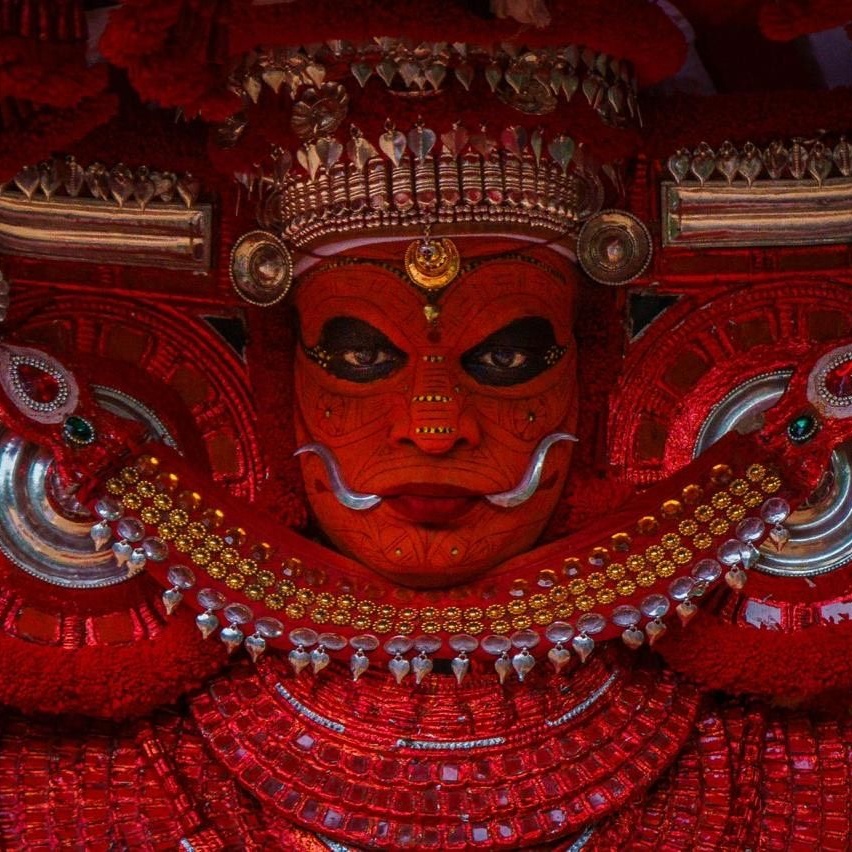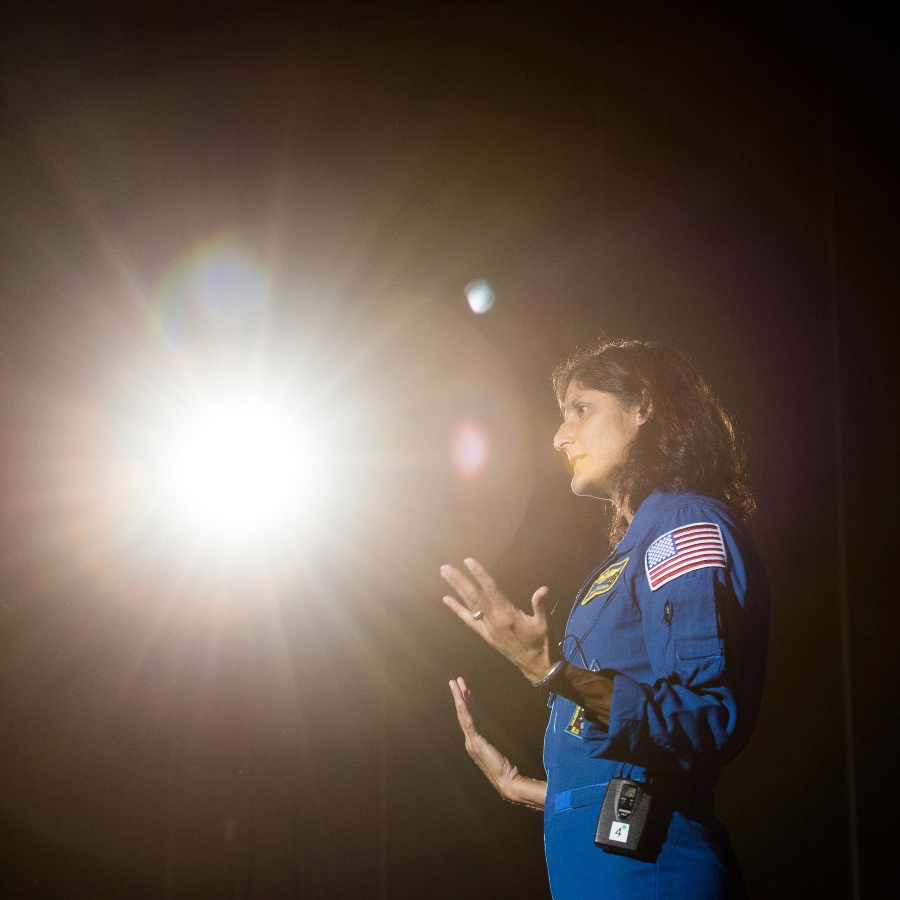Adria Arjonas makes her entry about 31 minutes into Richard Linklater’s romantic comedy Hit Man, which came to Netflix last month. Viewed from the perspective of Gary (Glen Powell), she starts off as a blurry silhouette who crystallises into the figure of the statuesque Madison. About 20 minutes later, at the end of their second meeting, Gary and Madison are fused in a frantic kiss followed by a montage that leaves very little to the imagination. The sex scenes in Hit Man raised the eyebrows of many a Linklater fan (the director has been the patron saint of slow-burn romances such as Before Sunset). However, for all the lustful heaving and bare skin, the sexiest moments in Hit Man are not when Gary and Madison are at it like rabbits in heat. They’re when the two are talking, like when Gary asks “How do you want me?” and Madison lavishes on him a look that is equal parts curiosity and desire, with enough erotic charge to short-circuit a small neighbourhood.
Giving Gary and Madison a run for their money in the chemistry department is the lead pair of the hit Chinese drama The Double. There is a significant difference, though. The Double is a slow-burn romance at its slowest, and also its burn-iest despite the absence of anything but a single, chaste kiss. The show denies its audience the pleasure of seeing the lead pair being sexually intimate—which is precisely what makes it undeniably, unbearably sexy.

While it is technically a show about revenge, The Double is anchored by the sizzling relationship between Wu Jinyan as the intrepid heroine Jiang Li and the dashing Duke Su, played by Wang Xingyue of the impossibly beautiful bone structure. Jiang Li and Duke Su meet in the second episode, but we have to get 10 episodes into the 40-episode season before we see their romance even begin to blossom. The first time we seem them kiss is in the final episode. However, despite this chaste façade and approximately 39.5 episodes worth of gently suggestive repartee, almost every scene that Jiang Li and Duke Su have together crackles with erotic chemistry. It’s in the way she abandons propriety when it comes to Duke Su, staring as he takes off his shirt or smiling to herself when she thinks about him while in her bath. And it’s in the way Duke Su watches Jiang Li, often filmed so that Wang looks straight into the camera, turning the viewer into the object of his desires. In sharp contrast to the racy, graphic aesthetic of American films and shows, The Double leaves most things to the viewer’s imagination.
K-dramas do the same. Most of the time, the first nine episodes are spent building up to a kiss that is almost always prim and modest. Barring some satisfying and noteworthy exceptions like Into the Ring, Hyena, and King The Land, K-drama kisses tend to go out of their way to be bland and bleached of passion. Mouths barely open; lips don’t move; there’s a respectful gap between the two actors who hold each other gingerly. Take The Midnight Romance in the Hagwon, which is a love story between a man and an older woman who was once his tutor and is now his boss. It’s a mature romance in psychological terms, but the physical intimacy between the lead pair is deliberately muted. These scenes are invariably filmed to obscure more than they reveal—kisses are shot in dimly lit rooms, the camera pans away from the couple when they’re in bed, her hair acts like a veil that leaves you to imagine the kiss instead of offering evidence of any intensity. The real romance ends up surfacing in unexpected moments, in dialogues that add a romantic edge to otherwise mundane conversations. At one point, a casual enquiry about a colleague goes off on a tangent when he teases her about seeing him naked the night before. In another scene, the lead pair is loudly arguing in a bar and she demands to know what he hopes to achieve by fighting with her. “A long and passionate life together,” he replies earnestly, swiftly turning a public spat into something more private and tender. That one line changes the moment, making it more revealing than most sex scenes.

The pragmatic reason for K- and C-dramas’ steadfast modesty is that there are stringent guidelines imposed on televised entertainment by regulatory authorities in Korea and China. Physically speaking, romance must be at its most anodyne to ensure there is no possibility of censure or offence. This is reminiscent of early 20th-century Hollywood, inarguably the golden age of romantic comedies. When the Hays Code dictated that Hollywood could not show anything scandalous on screen, the likes of Cary Grant and Katherine Hepburn would make pulses flutter through little more than witty banter. With the rating system replacing the Hays Code in 1968, American entertainment had greater freedom to show pretty much whatever it wanted. Soon enough, a passionate kiss or a sex scene was the easier option to establish a romantic relationship. The more physically sexy they’ve got, the less banter there is between the lead pair, and romances started to teeter between listless and graphic. Hit Man, for instance, doesn’t take the time to explore what draws Madison and Gary to one another. Gorgeous, hot man meets gorgeous, hot woman and they have sex—what could be more obvious and basic than that?
But what if there was, once again, no option to show semi-nude canoodling? The constraints placed on K-dramas and C-dramas push writers, directors, and actors to establish characters and the dynamics of relationships in ways that keep sex and desire as subtext. Constrained by guidelines and norms, the shows focus on seduction, rather than rushing for the obvious climax as American entertainment tends to do. This also seems to nudge the audience towards a deeper and more imaginative engagement with the story. From carefully edited GIFs to fan fiction, dramaland consistently inspires its viewers to obsess over its characters in a manner distinctive to its tribe.
If you think about it, irrespective of language, the most satisfying on-screen romances are still the ones that let your imagination run riot rather than the ones that bare it all (pun entirely intended). For instance, armed with a rating that has allowed it to introduce romantic sex to the small screen, Bridgerton can show audiences not just the loosening of Penelope’s corset in the infamous mirror scene, but also the corset coming off. Yet if virality is any indication, Bridgerton’s popularity has a lot to do with its gift for being suggestive. What gets hearts racing are the richly sensual moments—like Colin murmuring “Lie down” in Penelope’s ears, or Penelope savouring the frosting off a cupcake, and the detail of which fingers Colin uses to set Penelope’s dress right in the carriage scene.
Maybe when it comes to romance, Elvis had it wrong. A little more conversation, a little less action please.




